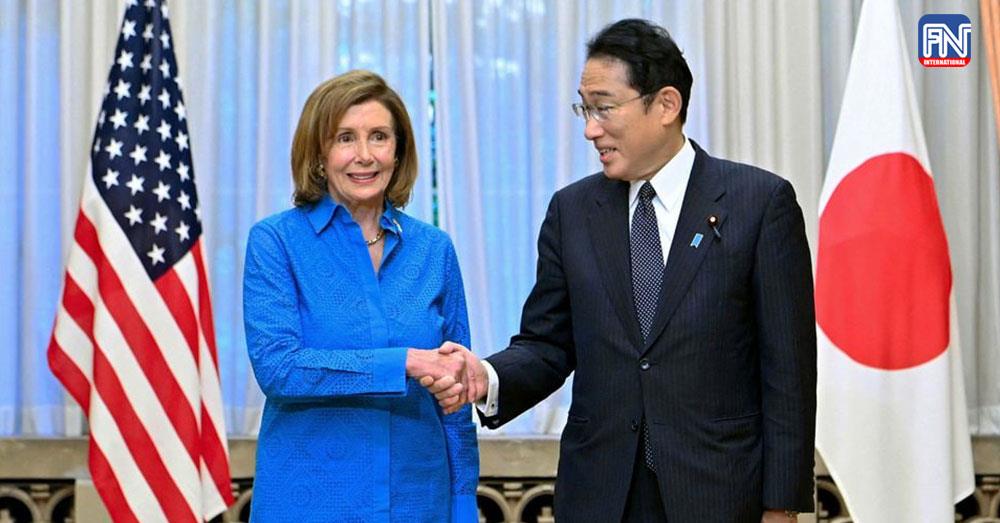TOKYO, Aug 5 (Reuters) - Japan and the United States agreed on Friday to work together on maintaining peace in the increasingly tense Taiwan Strait, amid unprecedented military drills by China including five missiles that landed in Japan's exclusive economic zone.
U.S. House of Representatives Speaker Nancy Pelosi is in Japan on the last stage of an Asian trip that included a brief and unannounced stop in Taiwan, the self-ruled island Beijing considers its own, in the highest-level visit by a U.S. official in 25 years.
Her visit, during which she lauded Taiwan's democracy and pledged solidarity, infuriated China and touched off military exercises that a state broadcaster said would be the largest by China in the Taiwan Strait, including live firing on the waters and in the airspace around the island.
Five missiles landed in Japan's exclusive economic zone (EEZ), prompting Tokyo to lodge a strong protest through diplomatic channels.
One of Washington's closest allies, Tokyo has been increasingly alarmed about China's growing might in the Indo-Pacific and the possibility that Beijing could take military action against Taiwan.
Pelosi met with Prime Minister Fumio Kishida at his official residence, where Kishida said the two allies would work together to maintain peace and stability in the Taiwan Strait, a key shipping route.
Japan, whose southernmost islands are closer to Taiwan than Tokyo, has warned that Chinese intimidation of Taiwan is an escalating national security threat.
"I have informed speaker Pelosi that the fact China's ballistic missiles had landed near Japanese water including EEZ threaten our national safety and security and that Japan had strongly condemned such actions," Kishida said.
"We also confirmed a continued close cooperation to maintain peace and stability in the Taiwan strait."
Tensions between Japan and China ramped up another notch on Thursday when China announced that a meeting between the two nations' foreign ministers, set to take place on the sidelines of an ASEAN meeting in Cambodia, had been called off due to its displeasure with a G7 statement urging Beijing to resolve Taiwan tension peacefully.
Pelosi arrived in Japan following a visit to South Korea on Thursday, where she vowed support to denuclearise North Korea. She will meet her Japanese counterpart Hiroyuki Hosoda, speaker of the lower house of parliament, later on Friday.
While visiting Japan in May, U.S. President Joe Biden said he would be willing to use force to defend Taiwan - a comment that appeared to stretch the limits of the U.S. policy of "strategic ambiguity" towards the island.
Kishida told Biden at the time that Japan would substantially increase its defence spending. His ruling Liberal Democratic Party (LDP) has pledged to double military spending to 2% of GDP.
